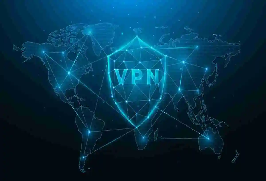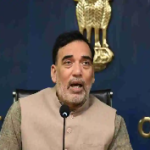Pakistan’s Council of Islamic Ideology (CII), the top advisory body on religious matters, has declared the use of Virtual Private Networks (VPNs) as contrary to Islamic laws, sparking widespread debate. The announcement coincides with the Ministry of Interior’s push to ban VPNs, citing concerns over censorship evasion and national security.
Clerics Justify VPN Ban Under Shariah
Raghib Naeemi, chairman of the CII, stated that Shariah permits the government to curb actions that lead to the “spread of evil.” He emphasized that any platform used for sharing controversial, blasphemous, or anti-national content should be immediately blocked. This declaration aligns with the government’s ongoing efforts to control online activity, particularly ahead of political rallies and elections.
Government’s Stance on VPNs
The Ministry of Interior has urged a VPN ban, claiming that the service is exploited by militants to facilitate violent activities. Officials argue that VPNs allow users to bypass restrictions and access content deemed harmful to national security, including pornographic and blasphemous material.
Authorities have also mandated VPN registration with Pakistan’s media regulator, which critics believe is an attempt to increase online surveillance.
Critics Decry Freedom of Expression Curbs
The proposed VPN ban has drawn criticism, with many viewing it as an attack on free speech. Critics argue that restricting VPNs, which are widely used by journalists, activists, and ordinary citizens, is a tool to suppress dissent. Supporters of jailed former Prime Minister Imran Khan, for example, have relied on VPNs to call for protests, as platforms like X (formerly Twitter) remain blocked in Pakistan.
“VPNs are legal in most countries but are often targeted in states with tight internet controls,” say analysts, highlighting Pakistan’s growing internet censorship.
Broader Context: Security and Militancy
The VPN debate unfolds against a backdrop of rising militancy in Pakistan. Authorities argue that VPNs have been used by insurgent groups like the Baloch Liberation Army (BLA) to propagate their agendas. Just last week, the BLA claimed responsibility for an attack on troops in Balochistan, leading to a deadly clash.
The government maintains that banning VPNs is part of its broader strategy to curb terrorism and ensure national security, though critics warn of its implications for digital freedom.
What’s Next?
While the VPN ban proposal is yet to be formalized, the declaration by the CII gives the government moral and religious backing to implement it. As internet users and advocacy groups push back, the debate underscores the tension between security concerns and individual freedoms in Pakistan.



